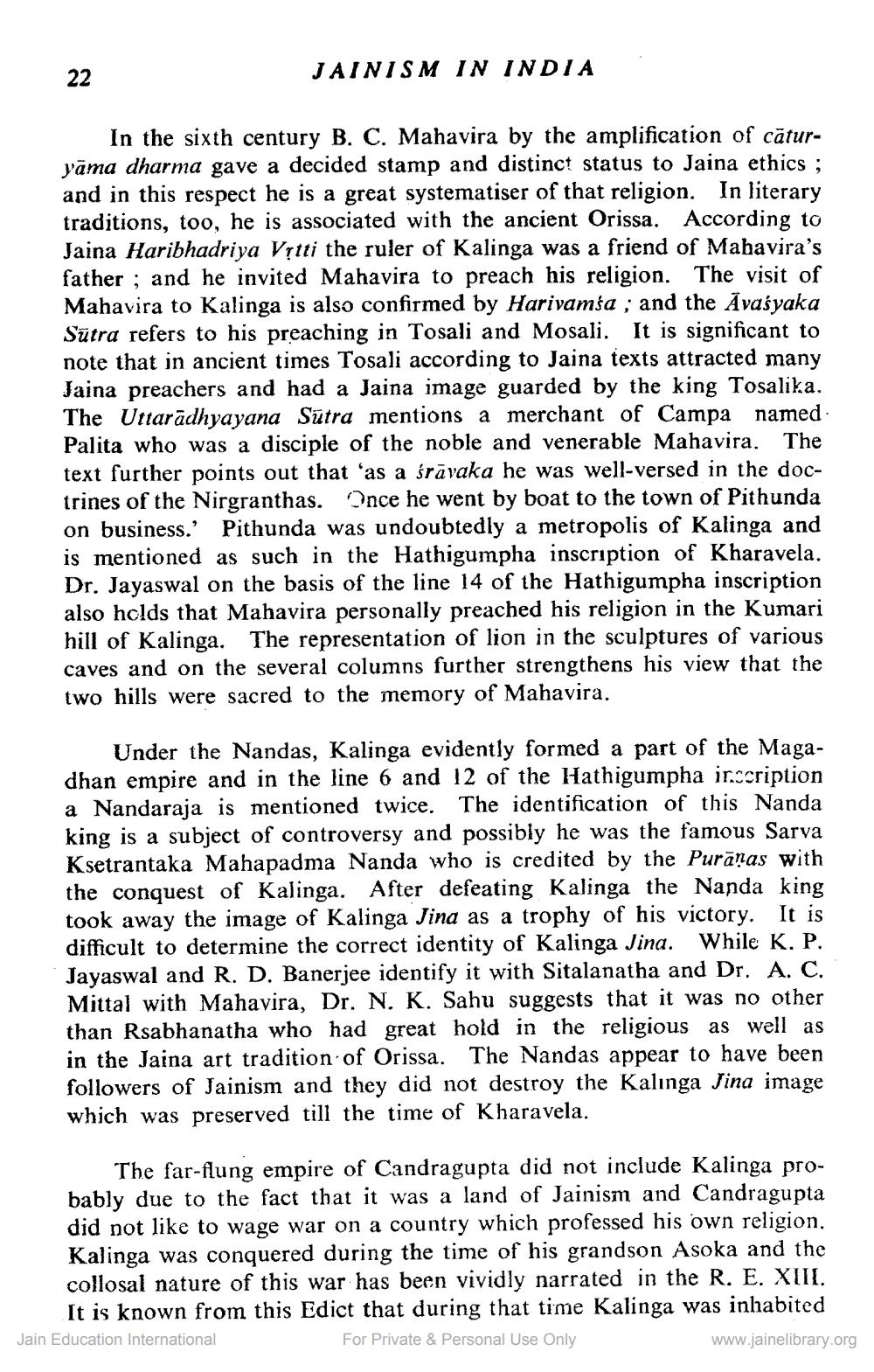________________
22
JAINISM IN INDIA
In the sixth century B. C. Mahavira by the amplification of caturyama dharma gave a decided stamp and distinct status to Jaina ethics; and in this respect he is a great systematiser of that religion. In literary traditions, too, he is associated with the ancient Orissa. According to Jaina Haribhadriya Vṛtti the ruler of Kalinga was a friend of Mahavira's father; and he invited Mahavira to preach his religion. The visit of Mahavira to Kalinga is also confirmed by Harivamsa; and the Avasyaka Sutra refers to his preaching in Tosali and Mosali. It is significant to note that in ancient times Tosali according to Jaina texts attracted many Jaina preachers and had a Jaina image guarded by the king Tosalika. The Uttaradhyayana Sutra mentions a merchant of Campa named Palita who was a disciple of the noble and venerable Mahavira. The text further points out that 'as a śrāvaka he was well-versed in the doctrines of the Nirgranthas. Once he went by boat to the town of Pithunda on business.' Pithunda was undoubtedly a metropolis of Kalinga and is mentioned as such in the Hathigumpha inscription of Kharavela. Dr. Jayaswal on the basis of the line 14 of the Hathigumpha inscription also holds that Mahavira personally preached his religion in the Kumari hill of Kalinga. The representation of lion in the sculptures of various caves and on the several columns further strengthens his view that the two hills were sacred to the memory of Mahavira.
Under the Nandas, Kalinga evidently formed a part of the Magadhan empire and in the line 6 and 12 of the Hathigumpha inscription a Nandaraja is mentioned twice. The identification of this Nanda king is a subject of controversy and possibly he was the famous Sarva Ksetrantaka Mahapadma Nanda who is credited by the Puranas with the conquest of Kalinga. After defeating Kalinga the Nanda king took away the image of Kalinga Jina as a trophy of his victory. It is difficult to determine the correct identity of Kalinga Jina. While K. P. Jayaswal and R. D. Banerjee identify it with Sitalanatha and Dr. A. C. Mittal with Mahavira, Dr. N. K. Sahu suggests that it was no other than Rsabhanatha who had great hold in the religious as well as in the Jaina art tradition of Orissa. The Nandas appear to have been followers of Jainism and they did not destroy the Kalinga Jina image which was preserved till the time of Kharavela.
The far-flung empire of Candragupta did not include Kalinga probably due to the fact that it was a land of Jainism and Candragupta did not like to wage war on a country which professed his own religion. Kalinga was conquered during the time of his grandson Asoka and the collosal nature of this war has been vividly narrated in the R. E. XIII. It is known from this Edict that during that time Kalinga was inhabited For Private & Personal Use Only
Jain Education International
www.jainelibrary.org




